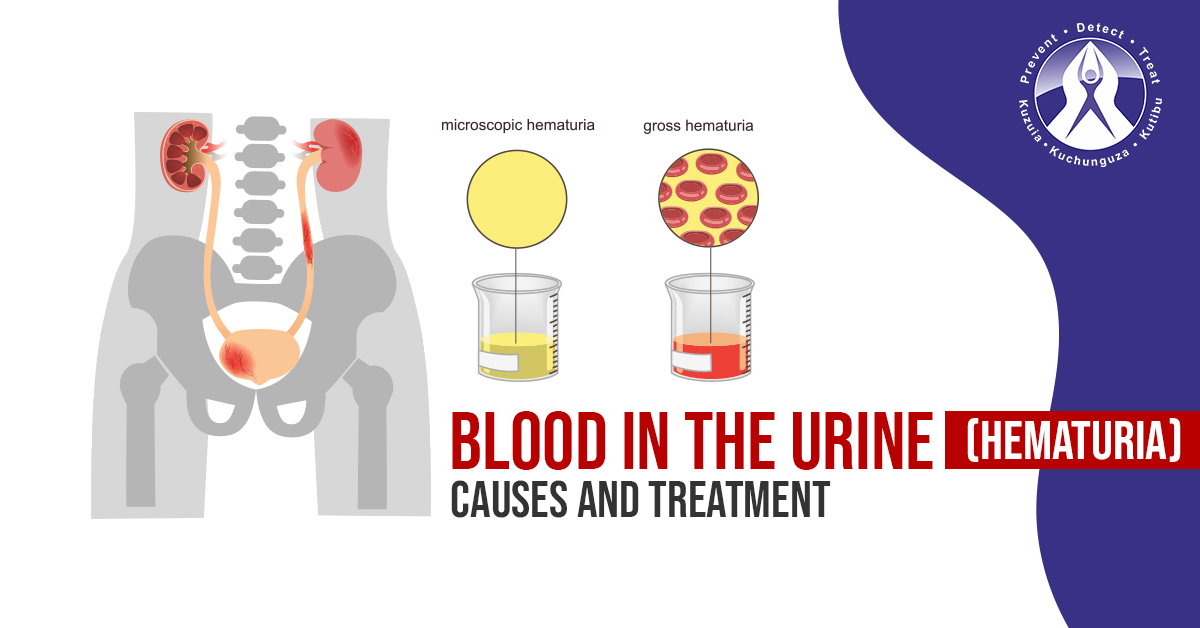Blood in the Urine (Hematuria): Causes and Treatment
3,666 viewsBlood in the urine, also known as hematuria, is a very serious issue and can alarm anyone who sees it for the first time while urinating. There are a lot of causes for hematuria but it is important to note that blood in urine in itself is not a disease but an indication of a variety of problems.
There are two types of hematurias.
- Gross hematuria: In this case, the blood in the urine is visible. The color of the urine could vary from red, brown or black.
- Microscopic hematuria: When the person cannot see blood in the urine but it is visible under the microscope.
Causes of Blood in Urine
There are a lot of causes behind a person coming across a situation like hematuria but all these causes are divided into two major categories:
Local urological causes
The urinary system consists of the kidneys, urinary bladder, urethra and/or prostate. In a normal situation, the urine travels from the bladder to the urethra and then eventually out of the body from the vagina or penis. There are a lot of causes behind the disturbance in this simple process. All these causes are called local urological causes:
Inflammation in the urinary system
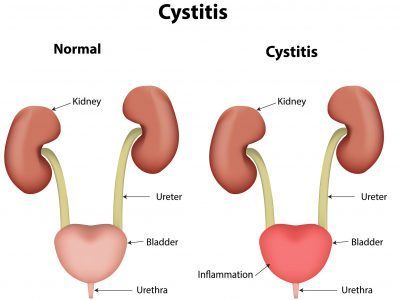 Inflammation in the bladder is also known as Cystitis. The cause behind this kind of inflammation in the urinary tract can be a bacterial infection. These infections are called UTIs (urinary tract infections). The symptoms include burning sensation while urinating, strong smell or odor in the urine and penis/vagina, pain or discomfort in the lower abdomen.
Inflammation in the bladder is also known as Cystitis. The cause behind this kind of inflammation in the urinary tract can be a bacterial infection. These infections are called UTIs (urinary tract infections). The symptoms include burning sensation while urinating, strong smell or odor in the urine and penis/vagina, pain or discomfort in the lower abdomen.
Treatment: The inflammation of the urinary system can be treated by over-the-counter medication of antibiotics and in some serious cases, surgery.
Trauma to the urinary system
A lot of times, an injury to the urinary system through a serious or mild blow, tear or piercing can cause a lot of pain and it could lead to hematuria.
Treatment: The treatment of this kind of problem depends on the severity of the case. If the trauma is serious, the person might have to go for surgery. It can also be treated with medicines that heal the wound if the injury isn’t too serious. In any case, it is ideal to consult a professional and get to know the right path of treatment.
Cancer in the kidney, urinary bladder or prostate
Cancer in the kidney grows very gradually but the symptoms are blood in urine, pain in the lower abdomen, urinating normally, burning sensation while urinating. It might start with one organ but if you don’t treat it immediately, it might spread to the adjoining parts of the urinary tract system.
Treatment: The treatment usually depends on the severity and spread of cancer. The person might have to go through surgery to remove the cancerous cells. To prevent the further growth of cancerous cells, the person might also have to go through hormonal and/or radiation therapy. Consulting a urologist and a cancer specialist might make the prognosis clear.
Benign enlargement of the prostate (BPH)
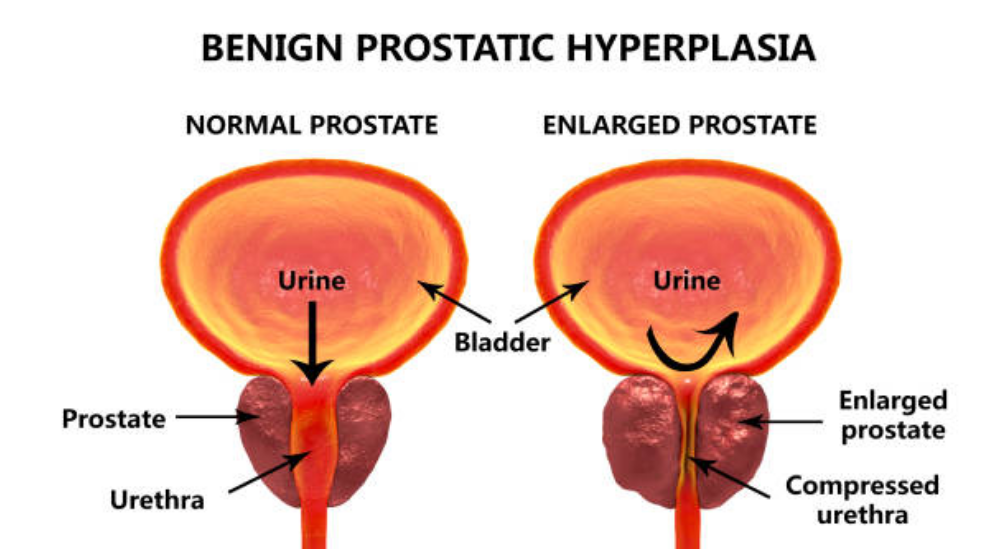
Enlargement of the prostate this is non-cancerous is called Benign enlargement. It might occur with old age. A lot of men happen to go through this problem from their 50’s. The symptoms include problems while urinating, frequent urination, loss of bladder control or a very slow and weak stream of urination.
Treatment: The treatment of BPH may differ as per the complications and size of the enlargement of the prostate. The options are endoscopy, medication or surgery.
Stone formation in the urinary tract
Urolithiasis is a type of stone formation that occurs in the kidney, urethra or the bladder. Kidney stones are also known as Renal Lithiasis. these are stone formations made up of salts, minerals, and impurities. These stones may vary in size. The bigger and sharper the stone, the more damage it can do to your kidney, urethra or bladder. The symptoms are acute pain in the lower abdomen, pain while urinating and blood in the urine.
Treatment: The treatment of stone formation in the urinary tract depends on the severity, location, size, and sharpness of the stone. The options are endoscopy, surgery and shock waves.
Polycystic kidney diseases
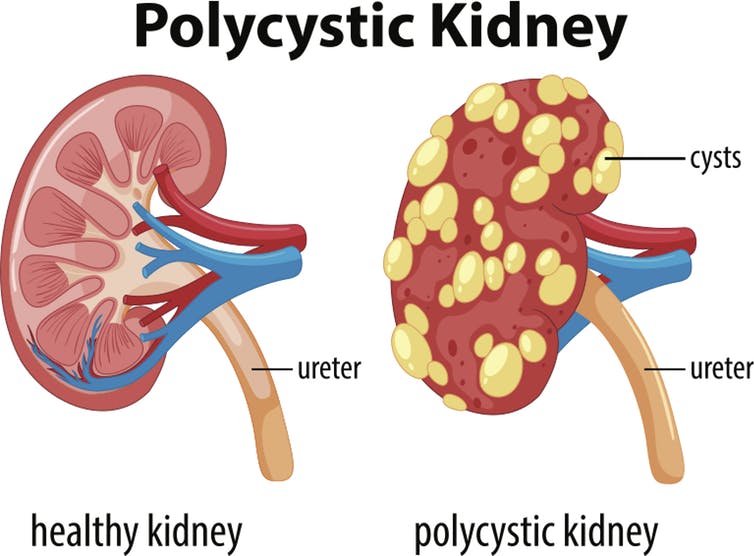
Polycystic kidney disease is a disorder wherein there are cysts or sacs in the kidney area. These cysts contain fluids that lead to the enlargement of the kidneys. You can inherit this disorder and the size of cysts may vary. This disorder might also be the reason behind a patient’s loss of kidney function.
Treatment: The treatment of polycystic kidney disease varies as per the size and severity of the cysts. A medication of antibiotics and surgically draining the cysts and removal of fluids are some of the treatment options. Going for regular check-ups to see if there is any further cyst formation is extremely important.
Now that we have talked about the local urological causes behind hematuria, let us talk about some of the general causes of blood in the urine.
General Causes of Blood in Urine
These are some of the most general causes of bleeding and shouldn’t be taken lightly:
Haemophilia
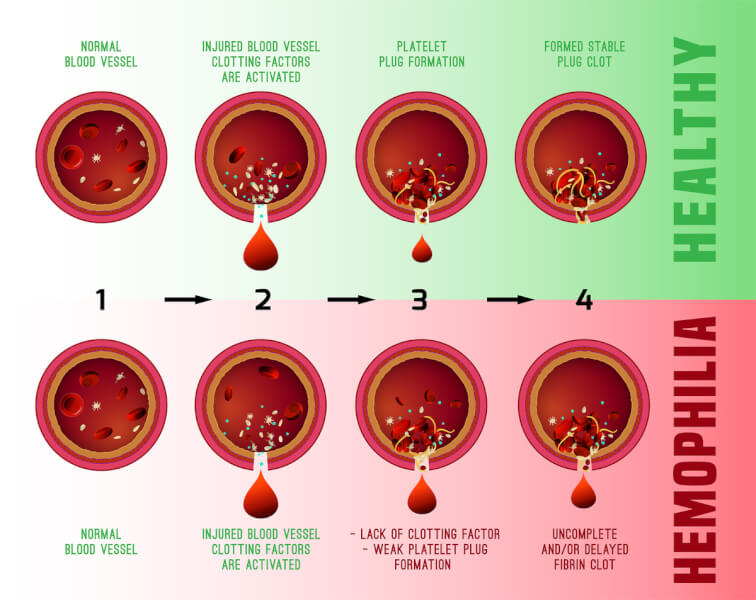
This is a very serious and rare disorder where the body’s ability to coagulate blood is severely low and that results in a lot of blood loss due to simple problems like a big cut or tear. This condition is hereditary and can cause a lot of problems as the person has to be extremely careful with his or her body. This happens because of the lack of clotting protein in the blood.
Purpura
These are purple spots that occur when small blood vessels burst and settle under the membrane. The size of the burst may vary and lead to small spots or large patches. It is one of the indications of a clotting disorder.
Sickle cell disease
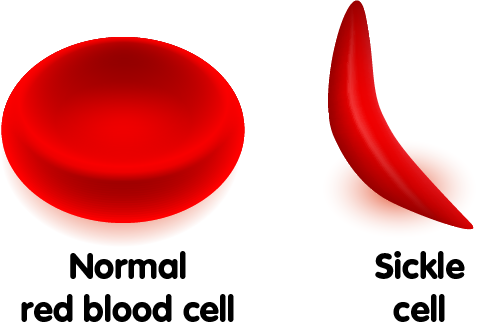
People who have this disease tend to have an atypical, sickle-shaped haemoglobin cell. It is an inherited disorder and leads to blockage of oxygen through blood cells and that can eventually cause a lot of harm.
Treatment of these general causes of bleeding
The treatment varies as per the causes and severity of these problems as these aren’t urological but cater to a bigger scope of bodily problems of the blood cells. Consulting a doctor is essential and shouldn’t be ignored.
What to do if you have Hematuria
If you have one of these issues then ignoring it might cost you your well-being. It is extremely important to immediately consult a urologist and take immediate measures to solve this problem. Remember, urine in the blood is not a disease in itself but a sign that there is some serious problem that you still haven’t taken care of. For all such minor or severe problems, please visit Regency Medical Centre now.

